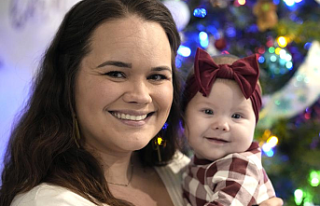Ferrara Archbishop Giancarlo Perego was present at the opening ceremony of Vivaldi’s "Il Farnace” at the city’s public theatre. The theater's artistic director hailed the decision as a "marvelous act" that helps heal and highlights one of Vivaldi’s lesser-known works.
Marcello Corvino stated that Vivaldi should be restored to Ferrara, ahead of the premier of Il Farnace, which recounts the tragic story of King Pharnaces II's dynasty.
Historians claim that Vivaldi was banned from Ferrara by Cardinal Tommaso Ruffo in late 1730s. Vivaldi, a priest of the Catholic faith, had stopped celebrating Mass and was in a relationship, according to historians. This decision resulted in the cancellation of Vivaldi’s 1739 Carnival production, "Il Farnace" which had been a huge success in Italy and elsewhere.
Vivaldi actually didn't celebrate Mass as he had respiratory problems. His relationship with Giro was similar to that of a composer and lead singer. Giro, however, also served as a nursemaid for the sickly composer.
Corvino stated that Vivaldi's cancellation was financially devastating because he had already paid for the production ahead of time. He was also experiencing a decline in his musical works, Corvino explained.
Vivaldi fell into debt and was buried in Vienna in 1741. He was only able to achieve posthumous fame after his manuscripts were discovered.
Massimo Faggioli (a Ferrara-born theologian and church historian) said that Vivaldi, like other artists of his time, had had more artistic freedom in Venice than in Ferrara. Ferrara was part of the papal States and had been under the authority and control of the pope.
Faggioli stated that Vivaldi was able to get away with many things in his life but couldn't escape the Vatican controlled and church controlled culture.
Federico Maria Sardelli is a Vivaldi expert and conducts the opera. He said that Vivaldi tried to score the production first from afar after Cardinal Ruffo banned the Venetian composer. He also wrote down specific stage directions and expressive and interpretative notes that he would normally have given to his singers in person.
These notations are still in the Ferrara production manuscript, but they were never staged. Sardelli stated that those notations were used as guidance for Thursday's opera opening for a two-night run.
He said, "We have this precious treasure, this score which is a mirror Vivaldi’s process." He wrote amazing things that no Baroque composer could ever write in a score, because they would speak it in person. This score has the privilege of recording Vivaldi's voice.
Sardelli presented Perego, the Ferrara archbishop at a conference held Thursday before the premiere of the score.
Sardelli stated, "With this gesture we want to heal an injury that needs to be healed."
Perego for his part accepted the score and acknowledged that Cardinal Ruffo's decision against Vivaldi was based more on rumor than fact. He pointed out that Vivaldi had been baptized by Vivaldi’s parish priest, who in a letter to Ruffo attested to the "morality” of the priest-composer. Giro was also known to be a woman "virtueful and faithful."
Perego claimed that Ruffo was only trying to promote "public morality" but Perego also said that the lessons of Vivaldi and Ferrara were ones Pope Francis frequently uses: "The tongue kills greater than the sword."












